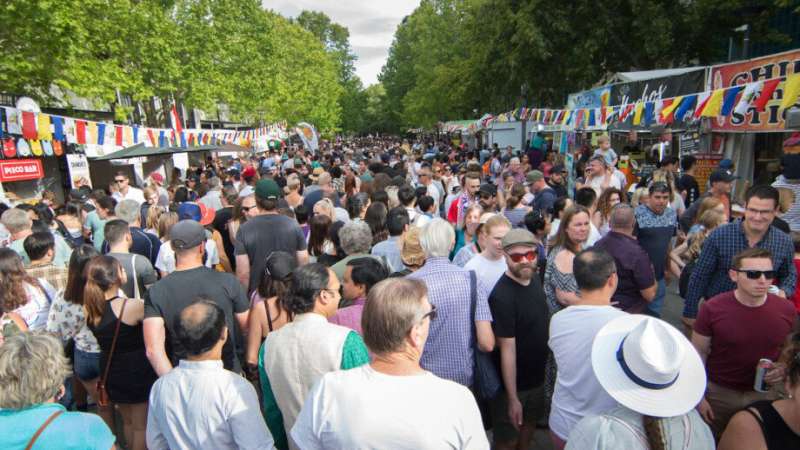Pandemic spike in social cohesion starting to decline in Australia, survey finds

Social cohesion in Australia increased during the pandemic but is now declining due to a weaker sense of pride, belonging and social justice, according to a major study led by researchers at The Australian National University (ANU) as part of a new partnership with the Scanlon Foundation Research Institute.
The findings are from the Mapping Social Cohesion 2022 survey.
Lead researcher, Dr. James O'Donnell from ANU, said Australians' sense of belonging and connectedness in our neighborhoods has been high and growing since the start of the COVID-19 pandemic.
"During the height of the pandemic in 2020, Australians also reported higher levels of national pride and belonging, higher levels of trust in the Federal Government, a greater sense of social justice, and increased acceptance of people from different national and ethnic backgrounds," Dr. O'Donnell said.
"However, our sense of national pride, belonging, and social justice are declining and are now at their lowest levels since 2007. In fact, the sense of social inclusion and justice in Australia has declined sharply since 2020."
"In 2022, social cohesion is lower than it was during the height of the pandemic. This has been driven by a renewed growth in the number of people who are concerned with economic inequality in Australia and a decline in our sense of national pride and belonging."
"We found that financial and cost of living pressures are strongly related to our sense of belonging and connectedness to each other, indicating that social and economic inequalities in Australia weigh down overall social cohesion."
According to the survey findings, the proportion of Australians who strongly agree the gap in incomes is too large has increased from 31% in 2019 to 36% in 2022.
At the same time, the proportion who strongly agree that Australia is a land of economic opportunity where in the long run, hard work brings a better life has declined from 19% in 2019 to just 14% in 2022.
Professor Kate Reynolds from ANU said the findings pointed to key challenges for governments and policymakers.
"Social cohesion in Australia is at a critical crossroads," Professor Reynolds said.
"Social cohesion indicates how society is functioning as a whole, so it is vital that we get it right. It is a critical ingredient for individual and community well-being and a thriving democracy and can bolster community resilience to shocks such as economic downturns and disasters."
"COVID-19 has highlighted worldwide the importance of a strong social and political fabric. It is clear that understanding and strengthening social cohesion in times of stability is critical to successfully navigate crisis."
"These are exactly the kind of challenges that ANU is looking to address as part of the ANU-Scanlon Social Cohesion Research Partnership and the ANU Grand Challenges Initiative on social cohesion. Enhancing social cohesion is also a strategic priority for ANU as it fulfills its distinct mission as Australia's national university."
More information: Study: scanloninstitute.org.au/sites/ … lt/files/2022-11/MSC%202022_Report_V2.pdf
Provided by Australian National University




















